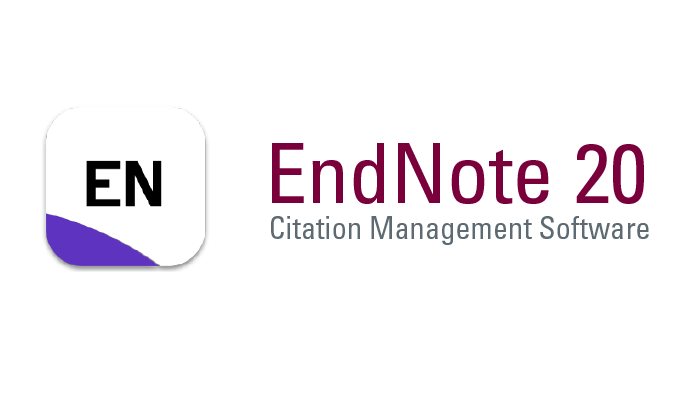PERAN PEMERINTAH DALAM PEMBERDAYAAN EKONOMI MASYARAKAT MELALUI BAITUL MAL DI ACEH
DOI:
https://doi.org/10.47887/amd.v2i1.22Keywords:
Aceh Goverment, Baitul Mal, ZIS, and Community Economic Empowerment.Abstract
This study discusses the role of government in community economic empowerment through Baitul Mal in Aceh. This study aims to contribute to the government on social issues such as poverty and underdevelopment. The method used in this study is qualitative research with data collection techniques, namely the study of literature. While the theory used is structural functionalism theory. Research findings from the discussion and analysis above that the Government of Aceh through Baitul Mal has played a role in empowering the economic community in Aceh in the form of productive Zakat, Infaq and Shadaqah. The government through Baitul Mal has carried out programs (a) providing business capital to the people who have their businesses to develop their businesses, both in the agriculture, animal husbandry, industrial, and trade sectors, (b) providing assistance in working tools, in the form of motorized pedicabs, and the tools needed in the agriculture, animal husbandry, trading, and industrial sectors that support their businesses, and (c) human resource development through skills training and skills to the community. This community economic empowerment program clearly contributes to social problems such as poverty, under development and access to education.
References
Aflah, Kuntarno Noor., & Mohd. Nasir Tajang. (2006). Zakat dan Peran Negara. Jakarta: FOZ.
Anwar, Ahmad Thoharul. (2018). Zakat Produktif Untuk Pemberdayaan Ekonomi Umat, Ziswaf: Jurnal Zakat dan Wakaf, (5)1.
Baitul Mal Aceh. (2018). Diakses 29 Desember 2018, dari acehprov.go.id.
Baitul Mal Sabang Salur Modal Usaha Untuk Ratusan Masyarakat Kurang mampu. (2018). Diakses 01 Januari 2019, dari serambinews.com.
Baitul Mal Serahkan Peralatan Kerja. (2018). Diakses 01 Januari 2019, dari serambinews.com.
Djawas, Mursyid. (2016). Implementasi Pengelolaan Zakat Di Aceh, Mazahib: Jurnal Pemikiran Hukum Islam, (15)1.
Firdaus, Rayyan., & Mukhlish M. Nur. (2017). Model Pemberdayaan Ekonomi Berbasis Zakat Produktif dalam Meningkatkan Pendapatan Masyarakat di Provinsi Aceh. FEB Universitas Malikussaleh, Lhokseumawe Aceh.
Hafidhuddin, Didin., & Ahmad Juwaini. (2006). Membangun Peradaban Zakat. Jakarta: Bamuis BNI & IMZ.
Karim, Ahmad. (1999). Sistem, Prinsip, dan Tujuan Ekonomi Islam. Bandung: Pustaka Setia.
Komitmen Baitul Mal Aceh Untuk Pemberdayaan Umat. (2017). Diakses 01 Januari 2019, dari serambinews.com
Laporan Tahunan Baitul Mal Aceh Tahun 2017.
Lexy J., Moleong. (1997). Metode Penelitian Kualitatif. Bandung: Rosda Karya.
Lubis, Fauzi Arif. (2016). Peranan BMT dalam Pemberdayaan Ekonomi Nasabah Di Kecamatan Berastagi-Kabanjahe Kabupaten Karo (Studi Kasus BMT Mitra Simalem Al-Karomah). Jurnal Human Falah, (3)2.
Muhammad, Ridwan. (2005). Sistem Dan Prosedur Mendirikan BMT: Panduan Kongres Nasional Lembaga Keuangan Mikro Syariah Baitul Maal wat Tamwil. Jakarta: PINBUK.
Musa, Armiadi. (2008). Zakat Produktif: Solusi Alternatif Pemberdayaan Ekonomi Umat; Potret dan Praktek Baitul Mal Aceh. Banda Aceh: Ar-Raniry Press Darussalam.
Musa, Armiadi. (2014). Kontribusi Pemerintah dalam Pengelolaan Zakat di Aceh (Kontestasi Penerapan Asas Lex Specialis dan Lex Generalis), Jurnal Media Syariah, Vol. XVI No. 1 Juni.
Nasrullah. (2015). Regulasi Zakat Dan Penerapan Zakat Produktif Sebagai Penunjang Pemberdayaan Masyarakat (Studi Kasus Pada Baitul Mal Kabupaten Aceh Utara). Jurnal Penelitian Sosial Keagamaan. Vol. 9, No. 1, Juni.
Poloma, Margaret M. (2010). Sosiologi Kontemporer. Jakarta: Raja Grafindo Persada.
Qanun Aceh No. 10 Tahun 2007 tentang Baitul Mal.
Sumodiningrat, Gunawan. (1999). Pemberdayaan Masyarakat dan Jaring Pengaman Sosial. Jakarta: Gramedia.
Undang-Undang No. 11 Tahun 2006 tentang Pemerintahan Aceh.
Zallum, Abdul Qadir. (1983). Amwal Fi Daulah Al-Khilafah. Beirut: Darul ‘Ilmi Lil Malayin.
Downloads
Published
How to Cite
Issue
Section
License
Copyright (c) 2021 Riski Azhari, Abidin Nurdin, Wais Alqarni

This work is licensed under a Creative Commons Attribution-ShareAlike 4.0 International License.
Authors retain copyright and grant the journal right of first publication and this work is licensed under a Creative Commons Attribution-ShareAlike 4.0 that allows others to share the work with an acknowledgement of the works authorship and initial publication in this journal.
All articles in this journal may be disseminated by listing valid sources and the title of the article should not be omitted. The content of the article is liable to the author.
Authors are able to enter into separate, additional contractual arrangements for the non-exclusive distribution of the journal's published version of the work (e.g., post it to an institutional repository or publish it in a book), with an acknowledgment of its initial publication in this journal.
Authors are permitted and encouraged to post their work online (e.g., in institutional repositories or on their website) prior to and during the submission process, as it can lead to productive exchanges, as well as earlier and greater citation of published work.
In the dissemination of articles by the author must declare the Al-Madaris Jurnal Pendidikan dan Studi Keislaman as the first party to publish the article.














